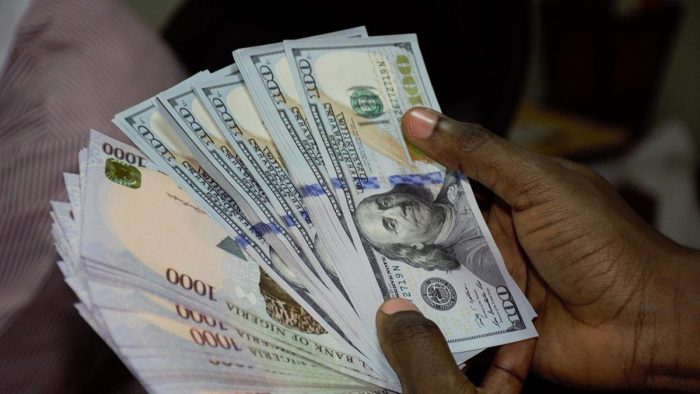Record-high fixed-income yields and central bank intervention have failed to stem the naira’s slide, with the Nigerian currency hitting a fresh record low this week.
The naira weakened 0.6% to 1,681 per dollar on Wednesday, according to FMDQ, which calculates the exchange rate. The currency has lost 72% of its value since reforms in June 2023 that allowed it to trade freely.
“Portfolio inflows seem to have faded over the past two weeks,” while central bank intervention to boost dollar supply remained “moderate,” Samir Gadio, head of Africa strategy at Standard Chartered Plc told Bloomberg. “Dollar demand tends to pick up periodically.”
Read also: Naira hits record low at official FX market
The Central Bank of Nigeria sold 1.4 trillion naira ($835 million) of one-year OMO bills at 24.28% on Monday after offering the security at a record 24.32% earlier this month, in a bid to attract dollar inflows. That failed to boost liquidity as spot turnover in the currency market dropped 10% to $196.8 million on Wednesday from the previous day, according to FMDQ. That’s well below the one-month average of $226.3 million.
With the inflation rate at 32.7% in September, real interest rates remain deeply negative, adding to investor concerns about committing money to soft-currency assets amid a sluggish economy. Central bank governor Olayemi Cardoso said in September he’s aiming for positive interest rates, as he unexpectedly lifted the benchmark rate by half a percentage point to 27.25%.
The Abuja-based bank is piling dollars into reserves to strengthen the nation’s buffers while considering financial market measures to boost investor inflows. The external reserves rose to $39.99 billion as of Nov. 5, the highest in about two years.
Join BusinessDay whatsapp Channel, to stay up to date
Open In Whatsapp





